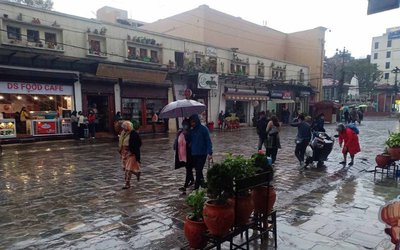The number of women workers going abroad seeking jobs has risen significantly in the recent years. The Gulf states have become a major destination for women migrant workers of Nepal. However, a large number of them are leaving the nation without proper documentation and through various illegal channels with the help of agents.
As the women use alternative routes, their lack of official documentation has made it difficult to even know their exact number. Many of those migrant workers have suffered both physically and mentally and are abused and exploited. Some have even lost their lives abroad.
Amidst the increasing concerns over abuse and exploitation, the government has banned women under the age of 30 from working in various Gulf nations.
However, various human rights agencies are calling for a broader step from the government to ease the plight of those working abroad and to stop others from going illegally.
“I went to Kuwait with big dreams. I thought I will come back home with money to ease the overall financial situation of my family. But there, I worked as a house maid. I had to work continuously for 20 hours some days. If I wasn’t able to work continuously, I would be beaten up. I was also never paid,” said Radha Kumari, a female migrant worker who went Kuwait with big dreams.
Remittances make up a huge share in the Nepal’s overall economy. But, the cost of earning the remittances is not small.
More than 1200 Nepalese are believed to go for foreign employment every day. The number of female workers working abroad is also rising rapidly. It is expected that around 6 lakhs women are working abroad. The official figures state a number which is much smaller than the reported number which shows that majority of women are going abroad for work through various illegal means.
Physical torture and abuse is common among the women migrant workers who have gone aboard illegally and have worked as a house maid.
“They used to beat me every day. They always used to find some reasons to beat me up. Sometimes they used to blame me for stealing, other times, they used to beat me for not working properly. I had nowhere to go. My body used to swell, but they never took me to a hospital,” said another migrant worker.
“There are certain flaws in the regulations, which is acting as a stimulator for the agents. Women migrate by getting influenced from the offers of various agents and are tempted for illegal migration to gulf nations. And then they face a horrible a time abroad which ruins their life,” said Sharu Joshi Shrestha, of UN Women.
“I went through extreme physical torture. I was exploited sexually as well by a male family member on whose house I worked. I had nowhere to run, nowhere to go. Luckily, they sent me back after I decided to buy air tickets of my own money and they never paid me,” said Manju Sapkota, a women migrant worker.
According to UN Women, figures that were published in various media some time back, said about 82 Nepali women, working as housemaids in the Gulf countries, committed suicide in the 18 months till June 2012.
Some 2,822 Nepali women were rescued from their workplaces in the same period. The women went through extreme torture and exploitation.
Around 200,000 Nepalese migrant women are believed to be working in Gulf States -- Saudi Arabia, Kuwait, Bahrain, Qatar, United Arab Emirates and Oman, according to various agencies working for Women Migrant workers.
After they return home from abroad, going through all the sufferings, the returning women are not accepted fully by the many family members.
“While on foreign jobs, I was beaten-up so many times. But, I was never sexually exploited. However, everyone here, my husband, my family members are suspicious of me. I have got no idea how to convince them of the truth,” said Monika Gurung, a worker who returned home from Oman.
(Names of women migrant workers stated above are changed for their privacy.)

Debesh Adhikari
Adhikari is a computer science student and writes on various contemporary issues.
- The UK Expressed Deep Concerned About Tensions in Nepal
- Mar 09, 2017
- Development Partners and Ministry of Education Agree to drive quality education
- Sep 28, 2016
- END HUNGERNepal plans to end hunger by 2025
- Mar 14, 2016
- UK Hopes For Inclusive Resolution For Nepal
- Sep 17, 2015
- Micromax Launches Bolt D320 For Nepali Market
- Aug 07, 2015














